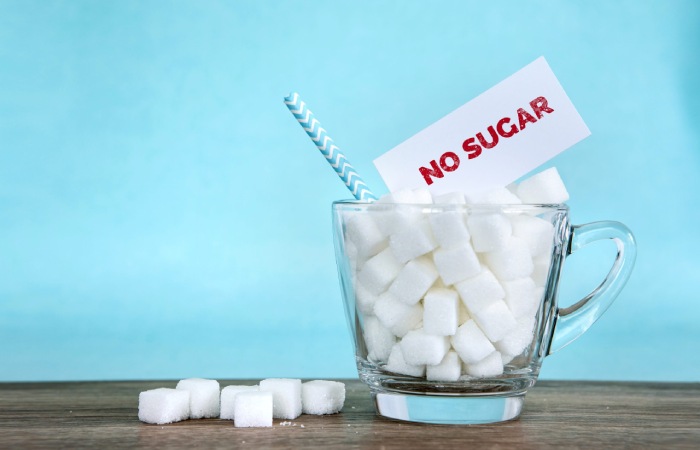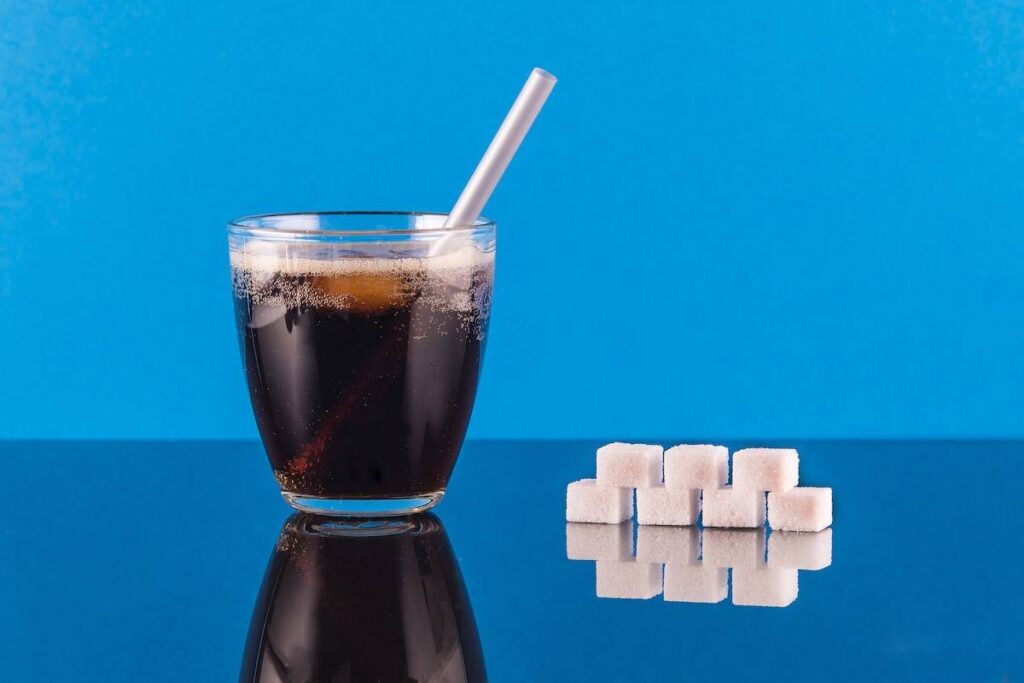Sugar Affects Your Liver: in your morning tea or coffee, favourite snacks, and even unexpected foods like salad dressings and sauces. A little sugar is harmless, but too much can significantly impact your health, especially your liver. The liver is essential for breaking down and regulating sugar in the body, but overloading can lead to serious complications.
How the Liver Processes Sugar
Your liver is like a chemical factory, breaking down nutrients and filtering toxins from your bloodstream. When you consume sugar, your digestive system breaks it down into two main components:
- Glucose: The body’s primary energy source, used by cells for fuel.
- Fructose: A type of sugar found in fruits, honey, and many processed foods, which is processed exclusively by the liver Sugar Affects Your Liver.
While some amount of glucose can be used immediately for energy, in small amounts, this isn’t a problem. However, when you consume excessive sugar, especially from soft drinks, sweets, and processed foods, your liver gets overwhelmed and converts glucose into fat.
The Impact of Excessive Sugar on Liver Function

Consuming too much sugar forces the liver to work overtime, leading to several harmful effects Sugar Affects Your Liver:
Increased Fat Buildup in the Liver
Excess glucose is converted into starch, which can accumulate in liver cells. Over time, this can principal to nonalcoholic fatty liver disease (NAFLD), a condition in which excessive fat in the liver causes irritation and damage.
Insulin Resistance and Blood Sugar Imbalance
When the liver is frequently exposed to high sugar levels, it can begin to resist insulin, the hormone that controls blood sugar. This container contributes to the development of type 2 diabetes and further deterioration of liver health.
Liver Inflammation and Scarring
Excess sugar can cause lasting inflammation in the liver, leading to scarring (fibrosis) and, in severe cases, cirrhosis, a condition in which liver damage becomes irreversible Sugar Affects Your Liver.
Signs That Sugar Is Harming Your Liver
How do you know if sugar is taking a toll on your liver? Watch for these warning signs Sugar Affects Your Liver:
- Fatigue: Feeling constantly tired, even with enough sleep
- Abdominal discomfort: Pain or bloating in the upper right side of the abdomen
- Unexplained weight gain: Particularly around the belly area
- Dark urine and light stools: Signs of liver stress
- Yellowing skin and eyes (Jaundice): A sign of severe liver damage
- Cravings for sweets: A cycle of sugar addiction can make the problem worse
If you notice these symptoms, it’s time to rethink your sugar intake and take steps to protect your liver.
Dietary and Lifestyle Changes to Protect Your Liver
Reduce Added Sugar Intake And Complex Carbohydrates
- Men: No more than 36 grammes (9 teaspoons) each day
- Women: No more than 25 grammes (6 teaspoons) each day
Check food tags and avoid foods high in added sugars, such as sodas, pastries, and flavoured yoghurts.
Eat Liver-Friendly Foods Sugar Affects Your Liver
Incorporate foods that support liver detoxification and function:
- Leafy greens (spinach, kale, broccoli): Help flush out toxins
- Berries (blueberries, raspberries): High in antioxidants
- Nuts (walnuts, almonds): Contain healthy fats that protect the liver
- Fatty fish (salmon, mackerel, sardines): Rich in Omega-3s, which reduce liver inflammation
- Turmeric and ginger: Natural anti-inflammatory properties
Stay Hydrated Sugar Affects Your Liver
Drinking plenty of water helps the liver eliminate toxins efficiently. Aim for at least 10 glasses per day.
Exercise Regularly
Physical activity helps burn excess sugar and fat before they accumulate in the liver. Aim for 30 minutes of reasonable exercise at least 5 days a week.
Get Enough Sleep Sugar Affects Your Liver
Deprived sleep can lead to insulin resistance and stress on the liver. Try to get 7-9 hours of sleep each night.
Manage Stress
Chronic stress increases sugar cravings and inflammation. Practice yoga, mindfulness, thought, or deep breathing techniques to effectively manage stress and promote relaxation.
Myths vs. Facts About Sugar & Liver Damage
Myth: Only alcohol damages the liver.
Fact: Excess sugar can cause liver disease, even if you don’t drink alcohol.
Myth: Fruit is bad because it contains sugar.
Fact: Whole fruits have fibre and nutrients that slow sugar absorption. The problem is added sugars in processed foods.
Myth: A “sugar detox” can instantly fix liver damage.
Fact: Cutting sugar helps, but liver healing takes time and requires long-term healthy habits.
Conclusion Sugar Affects Your Liver
The liver is a vital structure that processes everything we eat, including sugar. When we consume too much sugar, the liver has difficulty processing it, leading to fat accumulation, insulin resistance, and long-term damage. However, we can protect and even reverse liver damage by reducing added sugar, eating nutrient-rich foods, staying active, and making small lifestyle changes.
Frequently Asked Questions
Can I eat sugar if I have fatty liver?
Limiting your added sugar intake and focusing on natural, whole foods is best. Processed sugar can worsen your liver, while whole foods provide essential nutrients.
Does sugar from fruit harm the liver?
Whole fruits contain natural sugars, fibre, and antioxidants that support liver health. The problem is the added sugar in processed foods. That’s why entire fruits are preferable to fruit juices.
How long does it take to reverse fatty liver caused by sugar?
With a healthy diet and lifestyle, improvements may occur within 3-6 months, but full recovery depends on the severity of the liver damage.
What are the best drinks for liver health?
Green tea, lemon water, and herbal teas like dandelion or milk thistle support liver detoxification.
Does quitting sugar altogether help the liver?
Cutting back on sugar significantly improves liver function, but a balanced diet of whole foods is the best long-term approach, combined with moderate exercise.

